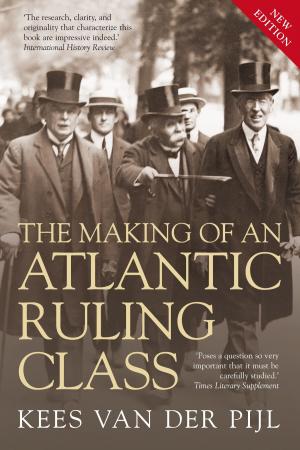An Unfinished Revolution
Karl Marx and Abraham Lincoln
Nonfiction, Social & Cultural Studies, Political Science, Politics, Labour & Industrial Relations, History & Theory, History, Americas, United States, Civil War Period (1850-1877)| Author: | Abraham Lincoln, Karl Marx, Raya Dunaevskaya, Friedrich Engels | ISBN: | 9781844677979 |
| Publisher: | Verso Books | Publication: | May 16, 2011 |
| Imprint: | Verso | Language: | English |
| Author: | Abraham Lincoln, Karl Marx, Raya Dunaevskaya, Friedrich Engels |
| ISBN: | 9781844677979 |
| Publisher: | Verso Books |
| Publication: | May 16, 2011 |
| Imprint: | Verso |
| Language: | English |
Karl Marx and Abraham Lincoln exchanged letters at the end of the Civil War, with Marx writing on behalf of the International Working Men’s Association. Although they were divided by far more than the Atlantic Ocean, they agreed on the urgency of suppressing slavery and the cause of “free labor.” In his introduction Robin Blackburn argues that Lincoln’s response to the IWA was a sign of the importance of the German American community as well as of the role of the International in opposing European recognition of the Confederacy.
The International went on to attract many thousands of supporters in over fifty regions of the US, and helped to spread the demand for an eight-hour day—enacted by Congress in 1868 for Federal employees. Blackburn shows how the International in America—born out of the Civil War—sought to radicalize Lincoln’s unfinished revolution and to advance the rights of labor, uniting black and white, men and women, native and foreign–born. The International contributed to a profound critique of the capitalist robber barons who enriched themselves during and after the war. It inspired an extraordinary series of strikes and class struggles in the postwar decades.
In addition to a range of key texts and letters by both Lincoln and Marx, this book includes Raya Dunaevskaya’s assessment of the impact of the Civil War on Marx’s theory and a survey by Frederick Engels of the progress of US labor in the 1880s.
Karl Marx and Abraham Lincoln exchanged letters at the end of the Civil War, with Marx writing on behalf of the International Working Men’s Association. Although they were divided by far more than the Atlantic Ocean, they agreed on the urgency of suppressing slavery and the cause of “free labor.” In his introduction Robin Blackburn argues that Lincoln’s response to the IWA was a sign of the importance of the German American community as well as of the role of the International in opposing European recognition of the Confederacy.
The International went on to attract many thousands of supporters in over fifty regions of the US, and helped to spread the demand for an eight-hour day—enacted by Congress in 1868 for Federal employees. Blackburn shows how the International in America—born out of the Civil War—sought to radicalize Lincoln’s unfinished revolution and to advance the rights of labor, uniting black and white, men and women, native and foreign–born. The International contributed to a profound critique of the capitalist robber barons who enriched themselves during and after the war. It inspired an extraordinary series of strikes and class struggles in the postwar decades.
In addition to a range of key texts and letters by both Lincoln and Marx, this book includes Raya Dunaevskaya’s assessment of the impact of the Civil War on Marx’s theory and a survey by Frederick Engels of the progress of US labor in the 1880s.















